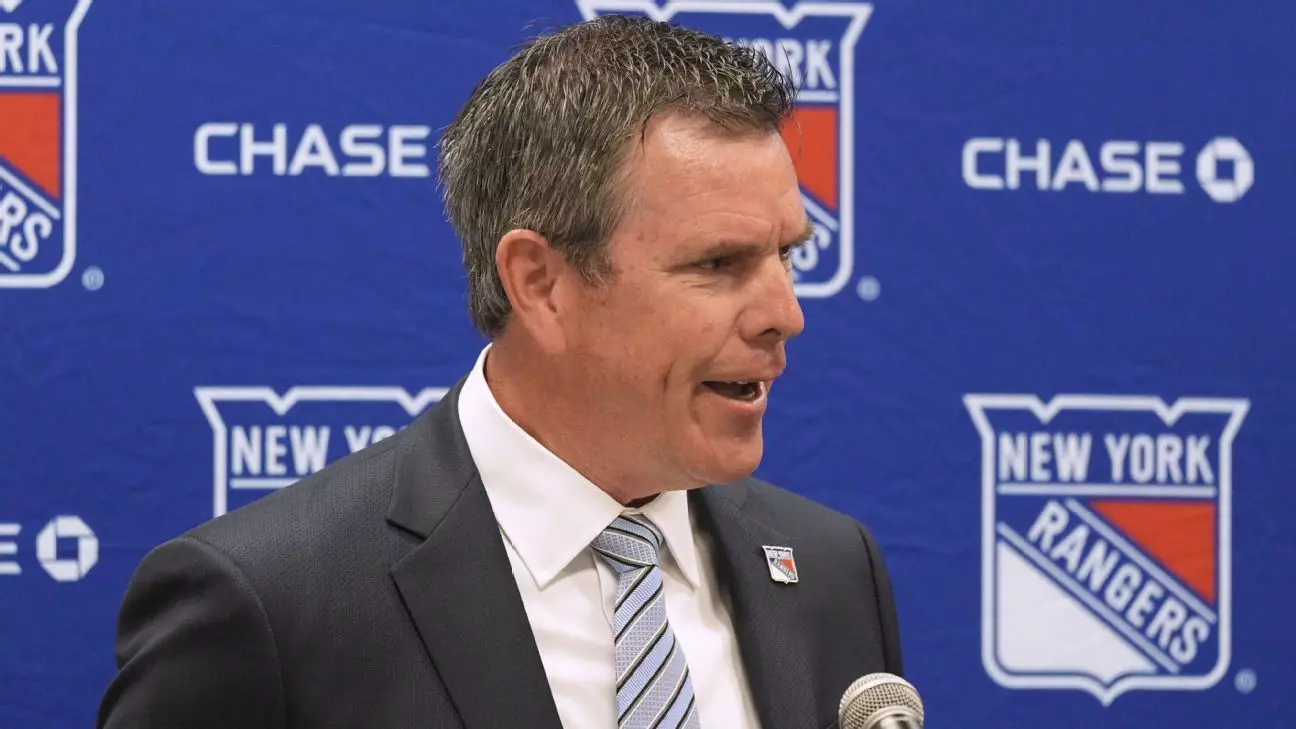The New York Rangers are entering a transformative chapter under the stewardship of Mike Sullivan, marking a significant shift after a disappointing season that saw them miss the playoffs despite their previous triumph in securing the Presidents’ Trophy. Sullivan, who has garnered acclaim as the only U.S.-born coach with multiple Stanley Cup victories, assumes the role with a vision of communication and leadership as cornerstones of his strategy. As he embarks on this new journey, the pressure is palpable; his immediate objectives are not only to restore the team’s competitive edge but also to harness the enormous talent within the roster.
Communication is Key
Sullivan’s emphasis on communication is a refreshing and strategic approach to coaching, especially in a league where the dynamics of team chemistry can make or break a season. In his introductory remarks, he stressed the importance of engaging with each player, a move that demonstrates his awareness of contemporary coaching methods which prioritize emotional intelligence and interpersonal relationships. The fact that he spent time speaking directly with every player within days of taking the position signals a departure from a more traditional, authoritative style that might have contributed to the previous coach’s downfall.
Sullivan’s talks with the players reflect an understanding that genuine dialogue forms the bedrock of trust. This is a pivotal element in professional sports where egos and personalities must coalesce to forge a winning team. The Rangers are endowed with leaders and players of character, and Sullivan’s intention to cultivate that strength could yield impressive results.
Challenges Ahead: Power Play and Defense
One of the critical areas requiring urgent attention is the Rangers’ power play, which plummeted from the league’s elite to an alarming 28th place last season. To say this is a glaring issue would be an understatement. Fixing the power play won’t simply be a tactical adjustment; it’s about instilling confidence back into the minds of the players who executed it so effectively in prior seasons. Sullivan’s past experience with elite players in Pittsburgh offers a glimmer of hope; he has a proven track record of re-igniting player efficiency.
The defensive structure in front of Igor Shesterkin, the Rangers’ star goaltender who experienced an uncharacteristically challenging season, also necessitates substantial improvement. Defensive woes can often overshadow a team’s potential, and it falls to Sullivan to devise strategies that not only empower individual players but also create collective accountability within the team. A solid defensive framework can just as easily become an offensive weapon when leveraging the talents of dynamic players like Artemi Panarin and Mika Zibanejad.
Balancing Experience with Youth
Sullivan’s experience in managing players at different stages of their careers will be pivotal as he integrates younger talents such as Brennan Othmann and Gabe Perreault. Both players represent the future of the franchise but need careful guidance to flourish. Sullivan’s emphasis on meritocracy—where every player must earn their ice time—aligns with a philosophy that can foster growth among younger athletes while maintaining the competitive spirit among seasoned players.
Navigating the balance between veteran presence and youthful energy is no easy task, but Sullivan’s track record suggests he is equipped to do so. His earlier tenure as an assistant coach with the Rangers provided him with valuable insights into the organizational culture, and this familiarity could help facilitate a smoother transition for up-and-coming players.
Shared Aspirations and Future Goals
Chris Drury, the current president and general manager, expressed palpable excitement over Sullivan’s appointment. Their previous collaborations add an extra layer of synergy to this partnership. The Rangers have historically sought to build competitive teams, and the urgency is now more pronounced than ever. Drury’s assertion that “the second Mike was available, we quickly and aggressively pursued him” underscores the high expectations and ambitions attached to Sullivan’s arrival.
Indeed, the Rangers find themselves at a crossroads: a young, talented roster yearning for guidance and a legacy to reclaim. Sullivan’s leadership, characterized by his adept communication skills and strategic insight, aims to unlock the full potential of this team. As he embarks on this journey, the eyes of a city long hungry for success will be watching closely, hoping for a revival that can once again place the Rangers among the NHL elite.


Leave a Reply